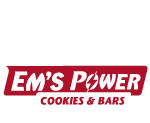The Pro’s of Protein
Protein is one of the major nutrients in our diet alongside carbohydrate and fat. It is a critical component for every cell of the human body, and it is not only a source of energy, but plays a large role in the growth and repair of our cells, pretty cool huh!
Think of protein as building blocks, there are 20 different pieces (we call these amino acids) that are used in various sequences to make up protein. These building blocks are used for the formation of muscles, hair, nails, skin, and organs, including the heart, kidneys, and liver.
Our bodies can naturally produce 11 of what we call “non-essential” amino acids on their own, whereas 9 “essential” amino acids must come from our diets. Additionally, when people talk about food being a “complete” protein, it means that it will contain all the essential amino acids.
Protein can come from either animal or plant-based foods. Animal sources of protein come from meat, chicken, seafood, eggs, milk and yoghurt. Plant-based protein comes from vegetables, grains, seeds, nuts, lentils and legumes. People believe that animal sources of protein are the only “complete” proteins. Although animal proteins may have better availability of essential amino acids, there are many ways to combine plant proteins to achieve complete sources of protein which is good news for vegetarians and vegans!
The other groovy thing about protein is that it keeps us feeling fuller for longer, so for those wanting to maintain a healthy weight or need something to keep them going between meals, protein is the way to go!
So how much protein do we need?
Science suggests that the general population needs around 0.5g to 1g of protein per kg of body weight per day. If we put this into context, for someone who weighs 70kg, they will need about 55g of protein per day.
There are also increased protein needs for certain groups such as athletes, teenagers going through growth spurts and pregnant and breastfeeding women. This is critical to support energy levels and growing bodies in teenagers, support the changes in the mother and foetal growth for those women breastfeeding or who are pregnant and to aid in muscle recovery around exercise for those who are more active.
When it comes to daily protein, it is important to spread your intake out during the day so that your body is reaping the benefits and refuelling. Aim to include around 15g – 20g of protein for snacks and around 20g – 40g for your main meals to meet your recommended daily intake (RDI).
Additionally, try to consume protein from ‘real foods’ and limit supplement intake. Protein shakes, bars and other supplements should only be used as ‘add-ons’ to your diet if you are struggling to meet your protein needs and should never be used to replace real food. The next time you hear the gym junky raving about the bulk protein he has in his new protein powder, don’t be fooled into buying the same, your body will thank you for it!
What foods provide quality protein?
As mentioned, we can get quality protein from whole foods. At mealtimes, try to aim for a ‘fist size’ full of meat, chicken or fish; tofu and tempeh; beans and legumes such as chickpeas, lentils and edamame.
Additionally, here are some great high protein snack options for you to have on hand.
Nuts – walnuts, peanuts, pistachios, cashews, Brazil nuts, pecans, almonds, and pine nuts are all great sources of plant-based protein.
Alongside having these by themselves, there are also other delicious ways to use nuts to add variety to your diet, such as through nut butters, sprinkling them through a salad or adding them to smoothies.
Chia seeds – these are a “complete” form of protein and can be added to many snack options such as adding these to your favourite smoothies, sprinkled over muesli and yogurt, stirred into your favourite dips to have with vegetables sticks or sprinkled over salad.
Quinoa – Quinoa is a grain with a high-protein content and is also considered to be a “complete” protein form. Quinoa is great to add to main meals, but it is also found in some great snack options, such as the new OSM Everyday Nutrition bar.
Hemp seeds – these are a nutrient dense food and rich in quality protein. They are considered to be a “complete” protein. In fact, by weight, hemp seeds provide similar amounts of protein as beef and lamb. Hemp seeds are great to add to yoghurt, with a chia seed pudding, and are also found in our new favourite OSM Everyday Nutrition bar.
Eggs – eggs are jam packed with nutrients, in particular protein. They may be smelly but they give us enough protein to lead us through to our main meals and are versatile when hard boiled.






